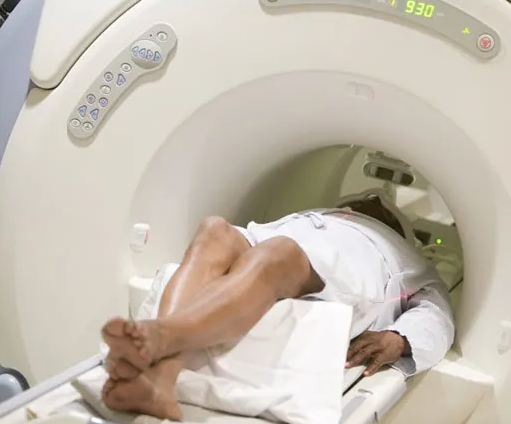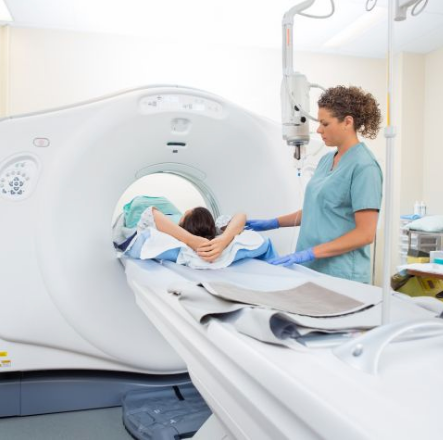What you need to know about Abdominal CT Scan
Contents
A CT scan (computed tomography scan), also known as a CAT scan, is a specialized X-ray that can generate cross-sectional images of an area of your body. During a CT scan, the machine circles your body and sends pictures to a computer, where a technician can view them. The machine creates pictures of your organs, bones, and other tissues using a combination of X-rays and a computer. It can show more detail than a regular X-ray.
An abdominal CT scan is used to help your doctor see the organs, bones, and blood vessels located in the abdominal cavity. The CT scan provides multiple images to help your doctor see numerous different views of the abdomen. An abdominal CT scan is used when your doctor suspects an abnormality in your abdominal area, but cannot find enough information through a lab test or physical exam.
Some of the reasons your doctor may recommend an abdominal CT scan include:
-
A mass in your abdomen that can be felt
-
Abdominal pain
-
Unexplained weight loss
-
Kidney stones (to check the location and the size of the stones)
-
Infections, such as appendicitis
-
Inflammation of the intestines
-
Recent cancer diagnosis
-
To check for intestinal obstruction
-
Injuries following trauma

What does the Procedure Involve?
During an abdominal CT scan, you will lie on a narrow table. Depending on the reason for your abdomen CT scan, your doctor may hook you to an IV to put contrast dye into your veins. You may need to lie in a specific position during the test. To ensure you stay in the right position long enough, pillows or straps may be used. During parts of the scan, you may need to hold your breath briefly.
From a separate room, the technician will use a remote control to move the table into the center of the CT scanner. Once you are inside the CT scanner, its x-ray beam will rotate around you.
Separate images of the belly area are created by a computer. These images are called slices and can be stored, viewed on a monitor, or printed on film. By stacking the slices together, three-dimensional models of the belly area can be created.
You will most likely go through the CT scanner several times. After a round of scans, you may have to wait while the technician reviews the images to ensure they are clear enough for your doctor to read.
How Long Should I Stay in the Area?
You can leave the hospital immediately after your CT scan is complete. It typically takes one day for a radiologist to process the results for your abdominal CT scan. Your doctor will schedule a follow-up appointment to discuss the results once it is ready. It is recommended that you stay in the area for at least 3 days.
What’s the Recovery Time?
An abdominal CT scan requires little to no downtime. You can likely resume your normal activities, including work, straight after your abdominal CT scan.
What About Aftercare?
There is no special aftercare after a CT scan. However, if you received a contrast during the procedure and you have a history of kidney function problems, your doctor may recommend a follow-up test of your kidney function.
What’s the Success Rate?
An abdominal CT scan has a high success and accuracy rate. The test can find various problems in the abdomen, including:
-
Liver problems, such as alcohol-related liver disease
-
Kidney problems, such as kidney infection or kidney stones
-
Abdominal aortic aneurysm
-
Crohn’s disease
-
Cancers, such as in the pancreas or in the colon.
An abdominal CT scan is a safe procedure. However, there are risks that you need to be aware of, particularly for children as they are more sensitive to radiation exposure than adults. CT scans for children is only recommended as a last resort. The risks of abdominal CT scans are:
-
Birth defects – during pregnancy, exposure to radiation increases the risk of birth defects. Therefore, it is vital that you let your doctor know if you are or might be pregnant.
-
Allergic reaction – if you are allergic to the contrast, you may develop itchiness or skin rash. Although rare, a life-threatening allergic reaction can occur.
-
Slightly increased risk of cancer – although this is very rare, radiation exposure from CT scans can slightly increase your risk of cancer. The chances of developing cancer because of a CT scan are around 1 in 2,000.
Are there Alternatives to an Abdominal CT Scan?
The most common alternatives to abdominal CT scans are MRIs and ultrasounds.
-
An ultrasound scan uses high-frequency sound waves to capture images from the inside of your body. This test is also known as sonography. Unlike abdominal CT scans, ultrasound uses no radiation.
-
MRI (magnetic resonance imaging) scan uses a strong magnetic field as well as radio waves to make detailed images of the organs and tissues within your abdomen.
What Should You Expect Before and After the Procedure
Before an abdominal CT scan, your doctor may suspect that something may be wrong in your abdominal area, but cannot find enough information through other tests. After the procedure, your doctor may be able to find the abnormality. If the result is abnormal, your doctor may schedule more testing to find out more about the problem. Then, you and your doctor can create a treatment or management plan for your condition.
For an in-depth analysis of an Abdominal CT Scan Procedure, watch this short video.
To check prices or to book an Abdominal CT Scan Procedure, in Thailand or anywhere else in the world, head on over to MyMediTravel now!

